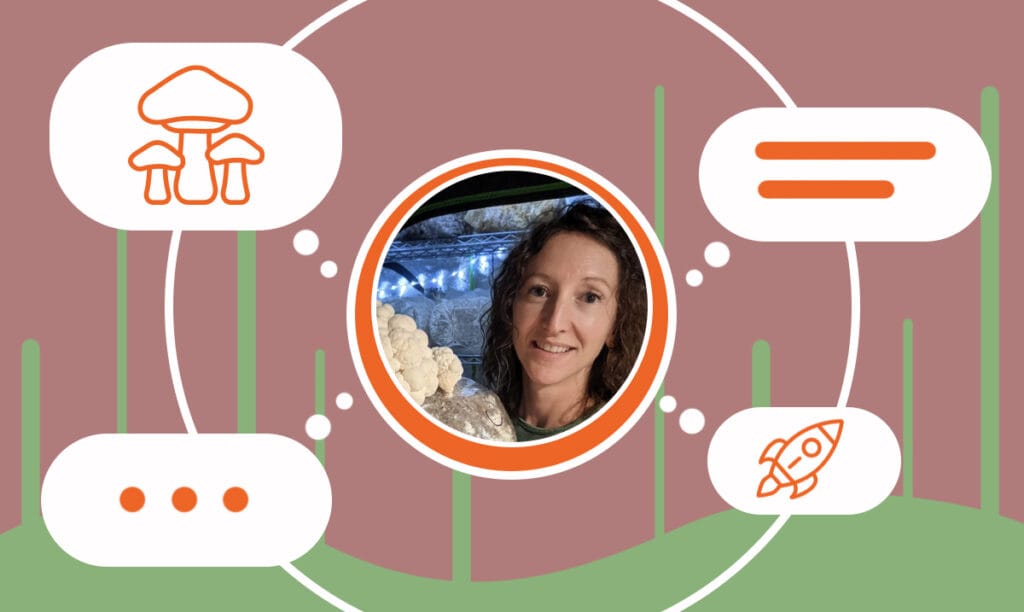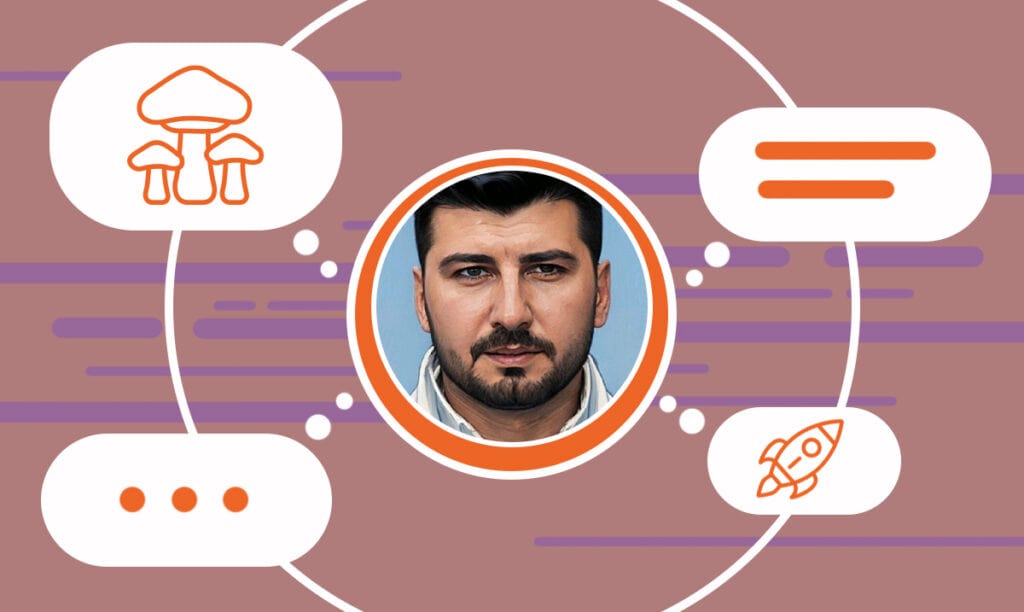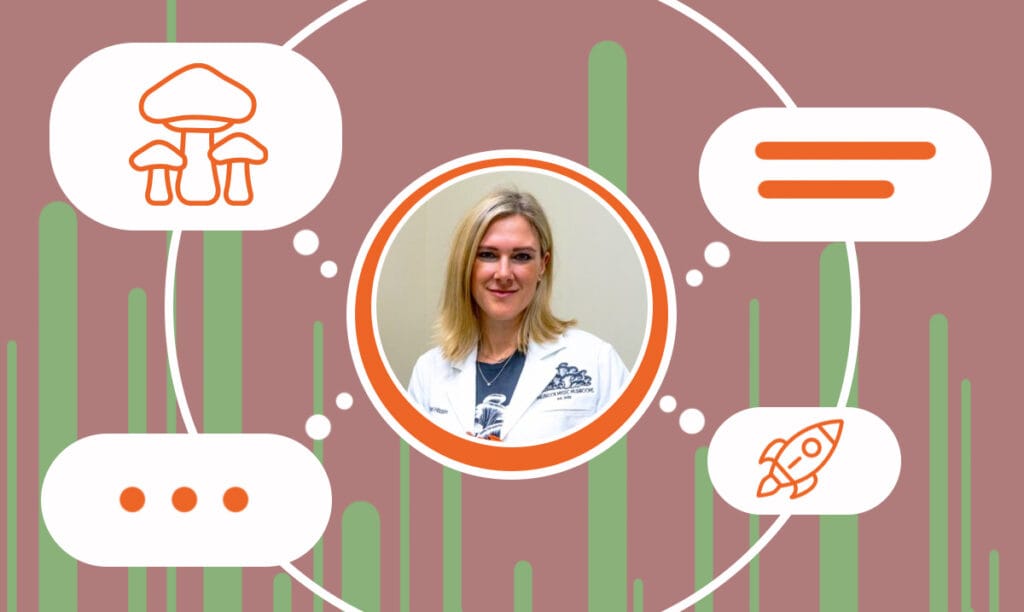In this interview, we delve into the fascinating world of organic mushroom cultivation with Solomon Ibragimov, the chairman and co-founder ofMushroo ...
How Sustainable Practices Boost Gourmet Mushrooms at MyCo Planet
Written by: Esther Strauss
Esther is a business strategist with over 20 years of experience as an entrepreneur, executive, educator, and management advisor.
Published on April 4, 2024

In this interview, we delve into the world of mushroom cultivation with Robin Moore, the founder of MyCo Planet. Based in Kansas City, MyCo Planet has carved a niche in the urban farming industry, specializing in fresh gourmet mushrooms and innovative mushroom products.
Join us as Robin shares insights on the journey of building this unique business, the challenges and triumphs along the way, and the future vision for MyCo Planet in the landscape of sustainable agriculture.
This conversation promises to be a rich exploration of passion, entrepreneurship, and the impactful role of mushrooms in both the culinary and environmental spheres.
Origins of MyCo Planet
SBS – What inspired you to start a business focused on mushrooms and mushroom-related products?
Robin – I’ve always had a love for nature and the amazing diversity and self-sustaining ecosystems that exist on this planet. My background is all in science, and I grew up in a rural area where growing your food was still common. I love mushrooms and cooking with mushrooms, but I could not find the varieties I wanted to try at any of the grocery stores here in Kansas City. I decided to teach myself to cultivate mushrooms and make it an extension of gardening. Mushrooms may seem like an unlikely superfood at first glance, but they’re quite remarkable.
Quality Assurance in Mushroom Cultivation
SBS – How do you ensure the quality and safety of your mushrooms and mushroom products?
Robin – To start with, we use organic-certified ingredients in all of our value-added products. We have a food safety plan at the farm, and all staff members are trained accordingly. We also use commercially licensed kitchens to prepare our mushroom products. As for our fresh mushrooms, we again use all organic-certified ingredients, follow a regimented cleaning schedule, and follow all proper storage procedures.
Overcoming Business Challenges
SBS – Can you share some challenges you faced in establishing your business and how you overcame them?
Robin – I felt very overwhelmed by starting a business and all the legal things that came with it. It was very hard to navigate what permits, licenses, and rules I needed to follow to get started. There was not a list of items or tasks that needed to be completed. There was more of a vague outline of basics but nothing specific. I spent hours researching and reading to make sure I had everything covered. I also reached out to local resources that help small businesses.
Marketing Mushrooms
SBS – What strategies have you found most effective for marketing and promoting your products?
Robin – I find being part of your community is the best way to promote your products. We are out all the time doing events in the city. We teach classes on and off the farm, give tours of the farm, and also collaborate with other businesses. This helps us reach more people who might not otherwise know that an urban mushroom farm exists in their city.
Sourcing for Success
SBS – How do you source your materials for mushroom cultivation, and what criteria do you use for selection?
Robin – We source our materials from the most reputable companies that we can find. We also use only organic-certified ingredients, which helps in this process as well. Talking with other commercial mushroom growers to see who is reliable can be helpful as well.
Sustainability at MyCo Planet
SBS – What role does sustainability play in your business operations and product development
Robin – Mushrooms use less water and energy than other crops and have a low carbon footprint. To help support a sustainable food source, MyCo Planet grows mushrooms on agricultural waste products such as soybean hulls, which would otherwise be discarded. Mushrooms can be grown on other waste products, such as used coffee grounds, making them ideal for urban farming. When the mushrooms have fruited, the growing material makes an excellent compost that is great for no-till and regenerative agricultural practices. Mushrooms naturally decompose forest floor material and are crucial to the ecosystem. They may be the most eco-friendly crop that can be grown, making them a very sustainable food source!
The Making of Mushroom Compost Blocks
SBS – Can you discuss the process and benefits of creating your mushroom compost blocks?
Robin – Mushroom blocks can be used to produce compost quickly. A used mushroom block is made from wood residues, sawdust, agricultural waste materials such as straw, and other organic matter. These materials were used to grow specific types of fungi. After the mushroom substrate has been spent, it is best placed on the compost pile. The fungi will further break down the organic material into compost.
The finished compost is rich in nutrients, making it ideal for gardens and farms.
Staying Ahead in Mushroom Cultivation
SBS – How do you stay updated with the latest trends and advancements in mushroom cultivation?
Robin – Keeping up with trends can be challenging when someone is so busy trying to build their own business, but it is very important to try. I do this by being part of the mushroom cultivation industry and groups and staying in contact with other farmers. Engaging in these groups is the best way to find out what others are up to!
Advice for Aspiring Mushroom Entrepreneurs
SBS – What advice would you give to someone looking to start a small business in the mushroom or urban farming industry?
Robin – Start small and truly take the time to understand the organism you are trying to cultivate. If you can master the necessary conditions on a small scale, then scale that up to the size of business you want.
Community Engagement and Education
SBS – How do you engage and educate the community about the benefits of mushrooms and sustainable agriculture?
Robin – We teach classes, give presentations, and post articles on our website as a source of information for the community to reference.
Customer Stories and Feedback
SBS – Can you share some success stories or customer feedback that has been particularly meaningful to your business?
Robin – We hear a lot of success stories from our customers who have started a cleaner eating diet or a more plant-based way of eating. Mushrooms make a wonderful meat substitute, and they’re the only nonmeat source of Vitamin D. Time and time again, people tell us how much weight they have lost, being able to go off of medication, and/or they are no longer diabetic just from changing their eating habits. Most people cannot find the varieties we grow at their grocery stores, so they are always beyond excited when they find us and know where to get Lion’s Mane every week.
Adapting to Market Changes
SBS – How have you adapted your business model in response to changes in the market or customer preferences?
Robin – We have made some changes over the years. We started out just supplying farmer’s markets but then saw the need for fresh local mushrooms at our local restaurants. Now, we have started taking on larger grocery store chain partnerships to help get our mushrooms to more people.
The Future of MyCo Planet
SBS – What are your future plans for MyCo Planet, and how do you envision its growth in the coming years?
Robin – We are going to continue building and growing more fresh mushrooms for Kansas City and, hopefully, beyond. We would love to have our mushrooms offered on a regional level at grocery stores and restaurants. We also want to keep educating and empowering people to grow themselves!
Subscribe to Our Newsletter
and gain insider access to cutting-edge business insights and trends.
Featured Resources

How to Build an Urban Mushroom Farm with Solomon Ibragimov
Published on March 21, 2024
Read Now

How Keri Hissim Turned Mushrooms into Culinary Gold
Published on March 18, 2024
In this interview, we sit down with Keri Hissim, the innovative founder behind Millbrook Mushrooms. Diving into the earthy world of gourmetmushrooms ...
Read Now

Shaping Food Safety through Technology with Katrin Liivat
Published on January 24, 2024
Welcome to our insightful conversation with Katrin Liivat, the chief executive officer and founder of FoodDocs, a company revolutionizing the foodin ...
Read Now
Comments